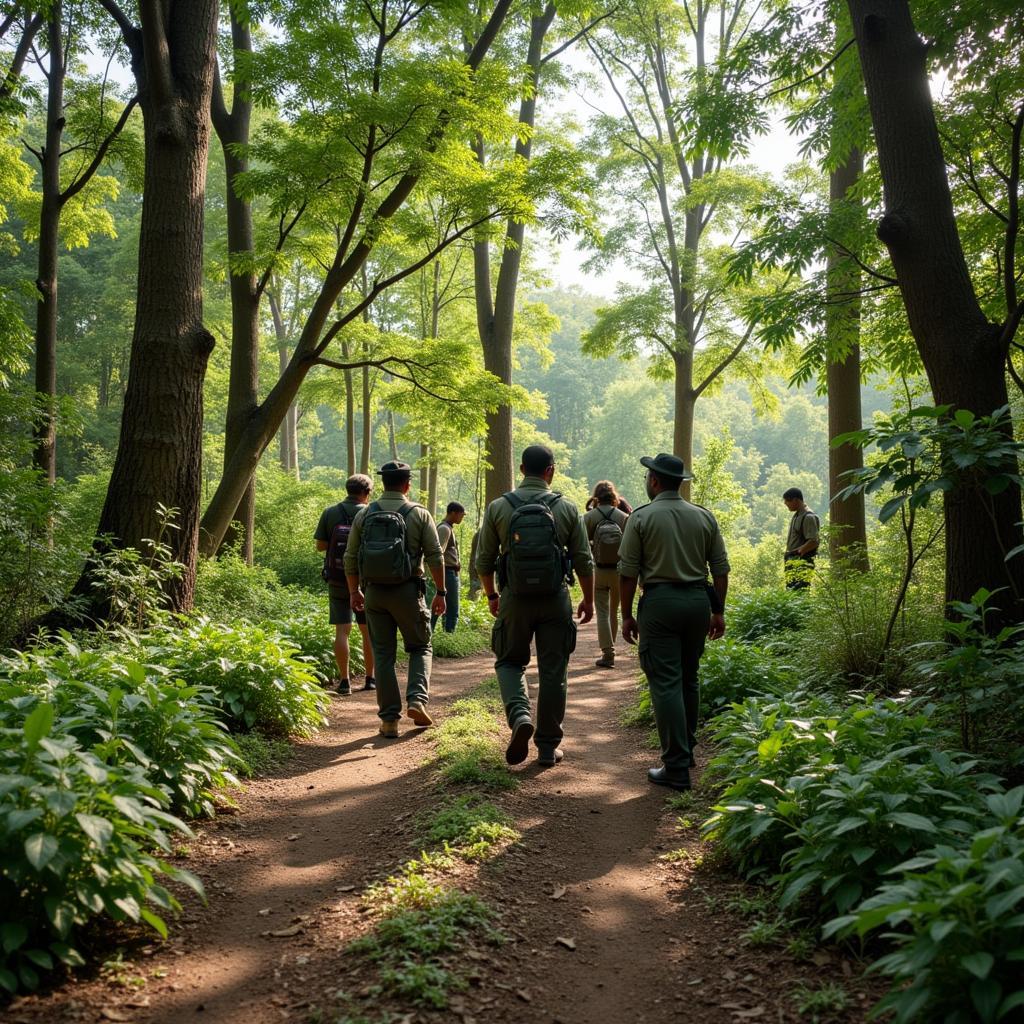The Plight of the African Chimpanzee: Endangered and in Need of Our Help
The African chimpanzee is facing a dire crisis, its very existence threatened by habitat loss, poaching, and disease. Understanding the factors contributing to the decline of these incredible primates is crucial for implementing effective conservation strategies. This article delves into the complex challenges surrounding the endangered African chimpanzee and explores what can be done to secure their future.
Understanding the Threats to the African Chimpanzee
The African chimpanzee, our closest living relative, is sadly classified as endangered. Their populations have plummeted drastically in recent years, and the primary culprits are habitat destruction, the illegal bushmeat trade, and infectious diseases. Deforestation, driven by logging, agriculture, and mining, fragments their habitat, isolating chimpanzee communities and making them more vulnerable.
Poaching for bushmeat is another significant threat. Chimpanzees are often targeted for their meat, which is sold in local markets. This illegal trade not only decimates chimpanzee populations but also exposes humans to zoonotic diseases, illnesses that can be transmitted from animals to humans. Furthermore, the pet trade also poses a danger, with young chimpanzees being captured and sold illegally, often leading to the death of their mothers during the capture process. about african forest
Infectious diseases, particularly respiratory illnesses and Ebola, can devastate chimpanzee populations. Their genetic similarity to humans makes them susceptible to many of the same diseases. Outbreaks can quickly spread through communities, causing widespread mortality. Human encroachment into chimpanzee habitats increases the risk of disease transmission.
Why Protecting the African Chimpanzee Matters
Conserving African chimpanzees is not just about saving a single species; it’s about protecting entire ecosystems. As keystone species, chimpanzees play a vital role in seed dispersal, forest regeneration, and maintaining biodiversity. Their disappearance would have cascading effects on the delicate balance of their environment. african jungle animals images
Moreover, studying chimpanzees offers invaluable insights into human evolution and behavior. Their complex social structures, tool use, and communication skills shed light on our own evolutionary history. By protecting them, we preserve a crucial link to our past.
What Can Be Done to Save the Endangered African Chimpanzee?
Efforts to protect the African chimpanzee require a multi-pronged approach. Strengthening law enforcement and combating poaching are crucial. This includes increasing patrols in protected areas, improving surveillance technologies, and imposing stricter penalties for wildlife crimes. african forest in x vedios
Promoting sustainable land management practices and reducing deforestation is essential for preserving chimpanzee habitat. This involves working with local communities to develop alternative livelihoods that don’t rely on forest destruction, such as ecotourism and sustainable agriculture.
Supporting chimpanzee sanctuaries and rehabilitation centers provides a safe haven for orphaned and injured chimpanzees. These centers play a vital role in rescuing chimpanzees from the illegal pet trade and providing them with the care they need. african animalsi mages with names
Educating local communities about the importance of chimpanzee conservation is also key. Raising awareness about the threats facing chimpanzees and the benefits of protecting them can foster a sense of stewardship and encourage community involvement in conservation efforts.
Dr. Jane Goodall, renowned primatologist and conservationist, emphasizes, “Every individual can make a difference. By supporting conservation organizations, making informed choices about our consumption, and spreading awareness, we can all contribute to saving these magnificent creatures.”  African Chimpanzee Conservation Efforts
African Chimpanzee Conservation Efforts
How are African Chimpanzees endangered?
African chimpanzees are endangered due to habitat loss, poaching, and disease.
What is being done to help the African chimpanzee?
Conservation efforts include anti-poaching patrols, habitat preservation, and community education programs.
What are the main threats to African chimpanzees?
The main threats are habitat destruction, the illegal bushmeat trade, and infectious diseases.
Conclusion
The African chimpanzee stands at a crossroads. Continued inaction will undoubtedly lead to further population declines and potential extinction. However, by working together, we can still secure a future for these intelligent and fascinating creatures. Supporting conservation initiatives, spreading awareness, and making conscious choices in our daily lives can make a significant impact on the plight of the endangered African chimpanzee. african jungle documentary sex videos  Endangered African Chimpanzee Future
Endangered African Chimpanzee Future
FAQ:
- What is the current population of African chimpanzees? Estimates suggest between 172,000 and 300,000 individuals remain in the wild.
- Where do African chimpanzees live? They inhabit forests and woodlands across equatorial Africa.
- What do African chimpanzees eat? Their diet consists mainly of fruits, leaves, insects, and occasionally small animals.
- How long do African chimpanzees live? In the wild, they can live up to 45 years.
- Are chimpanzees aggressive? While generally peaceful, they can display aggression, especially in territorial disputes.
- How intelligent are chimpanzees? Chimpanzees are highly intelligent, capable of using tools, solving problems, and displaying complex social behaviors.
- How can I help protect African chimpanzees? You can support reputable conservation organizations, spread awareness, and make sustainable choices in your daily life.
Other related articles on our website:
When you need support, please contact us at Phone Number: +255768904061, Email: kaka.mag@gmail.com or visit us at Mbarali DC Mawindi, Kangaga, Tanzania. We have a 24/7 customer support team.
